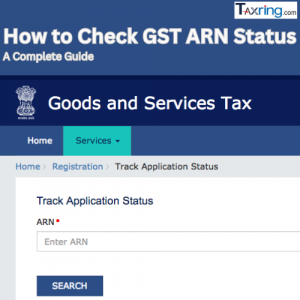
Income Tax Return Filing Charges & Expert Consultation | Taxring Who Should File an Income Tax Return?
What is ITR: Income Tax Return?
An Income Tax Return (ITR) is a document individuals submit to India's Income Tax Department, detailing their income and tax liabilities for a specific financial year, spanning from April 1st to March 31st of the following year. Income sources may include salary, business profits, property sales, dividends, capital gains, and interest. Any excess tax paid results in a refund issued by the Income Tax Department.
Understanding ITR Forms: Types of ITR
Navigating the world of tax forms can be daunting, but knowing which Income Tax Return (ITR) form to use can make the process much smoother. Here’s a clear and easy-to-follow guide on the seven ITR forms available in India, so you can file with confidence:
- ITR-1 (Sahaj): Ideal for Indian residents earning up to Rs 50 lakh from salary, a single house property, or other sources. This form isn’t for Non-Resident Indians (NRIs). If you're a salaried employee, just upload your Form 16 to the Cleartax Portal for a hassle-free filing.
- ITR-2: Suited for individuals and Hindu Undivided Families (HUFs) with income from salary, multiple properties, capital gains, or other sources—excluding business income. NRIs with these income types should also use this form.
- ITR-3: Designed for individuals and HUFs who earn income from a business or profession. This includes salaried individuals with side incomes from trading or investments. Report income from various sources including salaries, house property, capital gains, and business.
- ITR-4 (Sugam): For individuals, HUFs, and partnership firms opting for the presumptive taxation scheme. Use this form if your business turnover is up to Rs 2 crore or if you're a freelancer with a turnover up to Rs 50 lakh.
- ITR-5:Applicable for partnership firms, Limited Liability Partnerships (LLPs), Association of Persons (AOPs), and Body of Individuals (BOIs). Report business and other income using this form.
- ITR-6: For companies to report their income from business and other sources. This form helps companies comply with their tax obligations.
- ITR-7: Used by companies, associations, and trusts claiming tax exemptions under various sections of the Income Tax Act
Selecting the correct ITR form ensures you file accurately and stay compliant with tax regulations. For a smoother filing experience, make sure to choose the form that matches your income type and source.
Is Filing ITR Compulsory?
Filing your Income Tax Return (ITR) is compulsory if your earnings exceed the government's tax-exempt threshold. Failure to file on time can result in penalties and may hinder future endeavors such as securing loans or visas.
Filing your Income Tax Return (ITR) is mandatory if your income exceeds the tax-exempt threshold set by the government. Late filing may incur penalties and impact future financial transactions like loan applications or visa approvals.
Book a Consultation with Taxring Experts
Navigating income tax return filing can be overwhelming, but you don’t have to do it alone. At TaxRing, our tax experts are ready to assist you with all your filing needs. Book a consultation today to ensure compliance, optimize your returns, and reduce your tax liability. Contact us for personalized advice and support tailored to your financial situation!
Documents Required for File ITR?
To optimize the presentation and readability of the list of common ITR documents required for filing in FY 2023-24 (AY 2024-25):
1. PAN Card: Essential for tax filing, linked with bank account for refund purposes.
2. Aadhaar Card: Required as per Section 139AA of the Income Tax Act. Mandatory for verification and linking with PAN.
3. Form 16: Details salary and TDS deducted by the employer. Comprises Part A and Part B, crucial for salaried individuals.
4. Bank Account Details: All active accounts' details including bank name, account number, IFSC code. One account to be designated as primary for tax refunds.
5. Form 26AS: Annual tax statement reflecting taxes deposited against PAN. Includes TDS details from employers, banks, and other sources.
6.Home Loan Statement: Provides details of principal and interest repayments, necessary for deductions.
7. Tax Saving Instruments Proof: Documents related to investments in tax-saving schemes like ELSS, PPF, etc., for claiming deductions under Section 80C.
8. Capital Gains Details: Documents related to the sale of assets like shares, securities, or property, necessary for reporting capital gains or losses.
9. Rental Income Documents: For individuals earning rental income, including rent receipts and lease agreements.
10. Foreign Income Documents: Necessary if earning income from foreign sources, to claim tax credits and benefit from Double Taxation Avoidance Agreements (DTAA).
11. Dividend Income Documents: Statements or summaries from brokers or Demat accounts reflecting dividend income earned from investments.
This optimized list presents the essential documents required for filing Income Tax Returns, aiding taxpayers in understanding their obligations clearly and efficiently.
Who Should File an Income Tax Return?
Filing an income tax return is not just for high earners. Here are some categories of individuals who should consider filing:
- Individuals with Taxable Income: If your income exceeds the basic exemption limit, filing is mandatory.
- Self-Employed Individuals: Freelancers and business owners must file to report their income and expenses.
- Residents with Foreign Income: If you earn income from abroad, it’s important to declare it.
- Claiming Refunds: Even if you don’t meet the taxable income threshold, filing can help you claim a refund on TDS.
- Loans and Financial Aid: Many banks require ITRs for loan applications, making it beneficial to file.
How To File ITR Online - Step By Step Guide To Efile Income Tax Return for FY 2023-24 (AY 2024-25)
An Income Tax Return (ITR) is a vital document for taxpayers, encompassing income, expenses, tax deductions, investments, and taxes. The Income-tax Act, 1961 mandates its submission under various circumstances. Yet, filing isn't solely tied to income; it serves purposes like carrying forward losses, claiming refunds, or meeting requirements for visas, loans, or insurance.
How to file ITR online on income tax portal
Income Tax Return Filing Fees by CA
Hiring a chartered accountant for income tax return filing can offer peace of mind, especially for complex financial situations. Here’s a breakdown of typical fees:
- Individual Returns: ₹1,000 to ₹3,000
- Business Returns: ₹3,000 to ₹10,000 (depending on the turnover)
- Tax Planning and Advisory Services: Additional charges may apply for consultations or tax planning strategies.
How To File ITR With Taxring Extert?
File Your ITR with Taxring: Benefits and Process
Taxring offers a streamlined and efficient way to file your Income Tax Return (ITR) online. Here’s how Taxring simplifies the process, its benefits, and a step-by-step guide to get started.
Benefits of Filing ITR Through Taxring
1. User-Friendly Interface:
Taxring’s intuitive platform makes the e-filing process straightforward, even for those unfamiliar with tax filing.
2. Accuracy and Compliance:
With Taxring, you benefit from automated calculations and checks to ensure your return is accurate and compliant with current tax laws.
3. Expert Assistance:
Access professional support and guidance from tax experts to help you with complex tax situations and optimize your returns.
4. Secure Filing:
Taxring prioritizes your data security, ensuring that your financial information is protected with the highest standards of encryption.
5. Time-Saving:
Efficient filing processes and automated features help you complete your ITR quickly, saving you valuable time.
6. Error-Free Submissions:
Automated checks reduce the likelihood of errors, minimizing the risk of delays or penalties.
By choosing Taxring for your ITR filing, you’re opting for a hassle-free, efficient, and secure tax filing experience. For more details and to start the process
STEPS OF THE PROCESS
Choose Your Tax Filing Package:
Select the tax filing package that suits your needs and preferences.
Fill Income Tax Filing Form:
Complete the income tax filing form with your relevant financial information.
Upload Required Documents:
Easily upload the necessary documents to support your tax filing.
Make Online Payment:
Securely complete your payment online for the chosen tax filing package.
Review Your Tax Filing Documents:
Take a moment to review all your tax filing documents for accuracy and completeness.
Provide Tax Return Draft Before Filing:
We'll provide you with a tax return draft for your review before finalizing the filing.
Tax Optimization for Maximum Refund:
Our experts will assist in optimizing your tax filing to minimize liability and maximize refunds.
Assistance with Tax Payments:
If you owe taxes, we'll guide you through the payment process seamlessly.
Expert Guidance and Verification:
Expect a call from our tax filing experts for any additional details or documents required. We'll also assist with OTPs for verification or password reset.
ITR-V (Acknowledgement) Sent to Registered Email ID:
Upon successful filing, the ITR-V acknowledgment will be promptly sent to your registered email ID.
By following these streamlined steps, you can navigate the tax filing process with ease and confidence, ensuring compliance and maximizing your returns.
Read also
- Missed 31 july 2024 ITR last date - Learn here how to file your ITR after deadline
- What is Revised return and How to file under section 139 (5)
- budget 2024 Income tax slab
- What is Old and New Tax Regime?
- What is income tax audit under section 44Ab?
- Understanding capital gain taxes in india
- What is Digital signature certificate?




